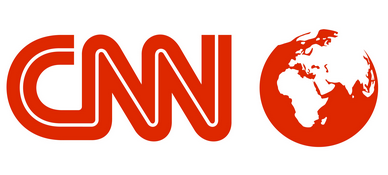
From the Website of CNN NEWS
links: https://edition.cnn.com/2022/09/14/china/xi-putin-meeting-sco-summit-analysis-intl-hnk/index.html
Xi and Putin want to create a new world order. Russia's setback in Ukraine could spoil their plans
Hong Kong (CNN)The last time Chinese leader Xi Jinping and Russian President Vladimir Putin sat down face to face, they declared triumphantly the arrival of a "new era" in international relations.
Amid a Western diplomatic boycott of the Beijing Winter Olympics and a looming crisis in Ukraine, the world's two most powerful autocrats shared their vision for a new world order: it would better accommodate their nations' interests, and no longer be dominated by the West.
In a 5,000-word joint statement, the two leaders declared a friendship with "no limits" and spelled out their shared grievances toward the United States and its allies.
"The world is going through momentous changes," their joint statement said, noting the "transformation of the global governance architecture and world order."
More than 200 days later, Xi and Putin are to meet again at a regional summit in the city of Samarkand in southeastern Uzbekistan. Much has changed, but not necessarily in ways China or Russia could have predicted.
Three weeks after meeting Xi in Beijing -- and just days after the Winter Olympics ended, Putin launched a full-scale invasion of Ukraine. He had expected a quick victory, but seven months in, Russia is far from winning. Its forces are exhausted, demoralized, and fleeing territories they have occupied for months.
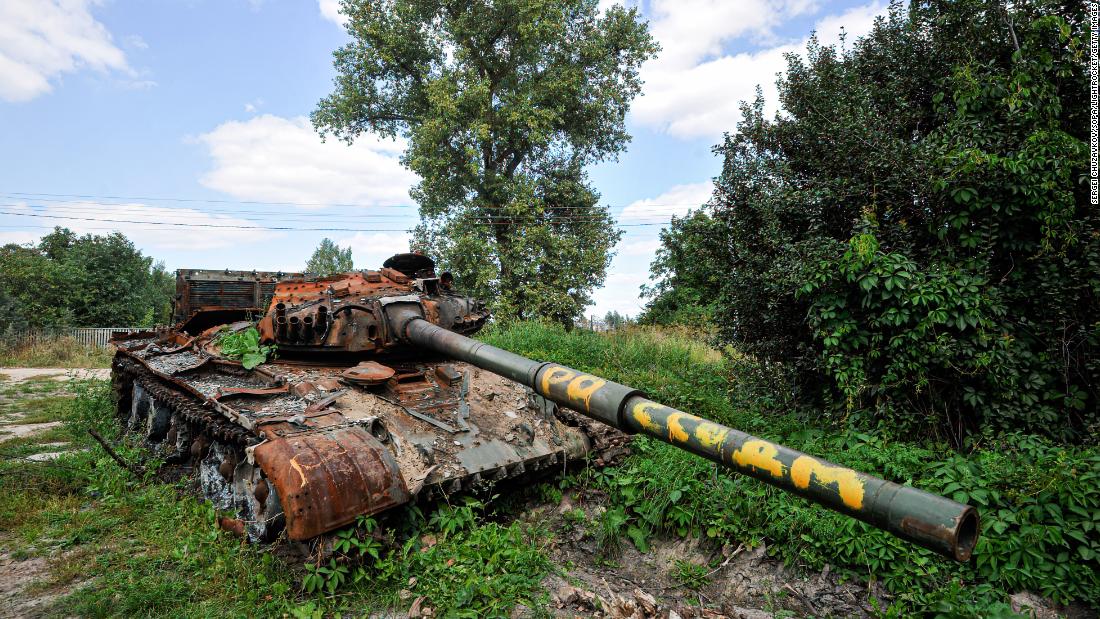
A destroyed Russian tank overgrown by plants in the village of Lukashivka, in the Chernihiv region of Ukraine.
And that is making China nervous. Having grown ever closer to Moscow under Xi, Beijing has a direct stake in the war's outcome. A defeated Russia will strengthen the West and become a less useful and reliable asset in China's great power rivalry with the US. A weakened Moscow might also be less of a distraction for the US, thereby enabling Washington to focus more squarely on Beijing.
Xi has a fine line to tread. If he leans too much into helping Russia, he risks exposing China to Western sanctions and diplomatic blowback that would harm its own interests. The backlash would also come at a sensitive time for Xi, who is only weeks away from seeking a norm-breaking third term at the 20th Party Congress.
So far, the two authoritarian powers have not come any closer to shaping the world order in their favor -- if anything, experts say Russia's war on Ukraine has served to strengthen Western resolve.
High stakes
For Putin, invading Ukraine was likely a first step in removing Russia from the post-World War II -- and post-Cold War -- international order.
A swift seizure of Ukraine would have dealt a painful blow to NATO, expanded Moscow's sphere of influence and significantly shifted the balance of power in Europe, in Russia's favor.
A Russian victory might also have set a dangerous precedent in regards to China, which has vowed to "unify" with the self-governing democracy of Taiwan -- by force if necessary.
Under Xi, Beijing is already stepping up military activity around the island. An easy win for Putin would have further deepened Xi's belief the West is in decline, and provided a template for an attack on Taiwan -- a hugely consequential event that could reset the global balance of power.
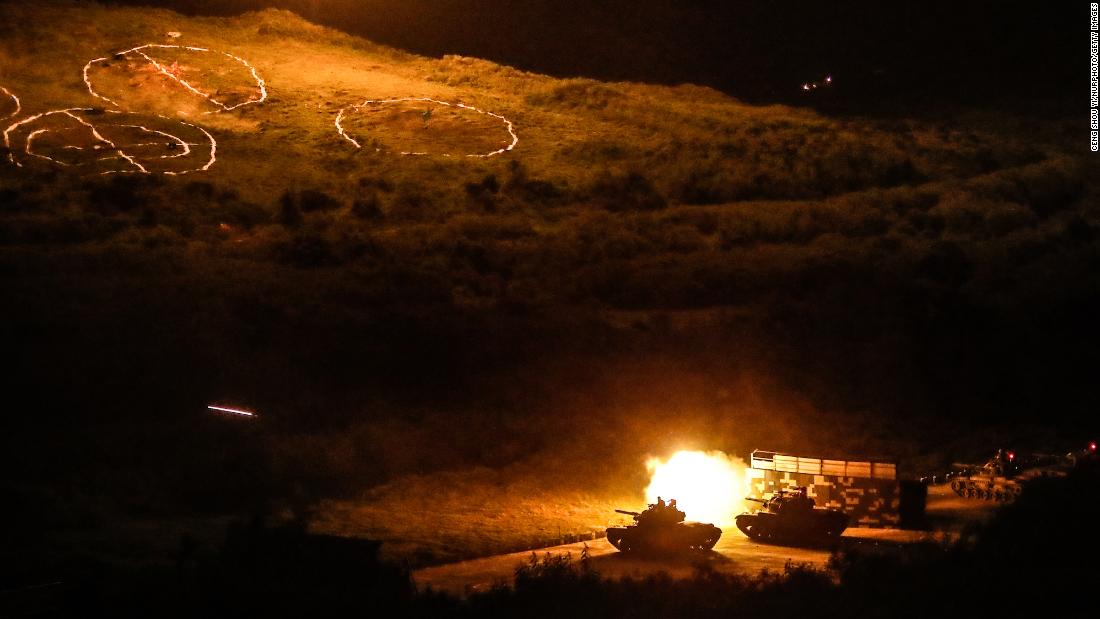
Tanks fire projectiles during a Taiwanese military live-fire drill, after Beijing increased its military exercises near Taiwan in September.
But Ukraine fought back and instead of sabotaging the US-led order, the invasion has reinvigorated NATO, strengthened transatlantic ties and united the West.
Putin's meeting with Xi, meanwhile, could not have come at a worse time. Russian forces are retreating en mass in the northeast of Ukraine, losing more territory in a week than they captured in five months.
While it is still too early to predict the outcome, even the prospect of Russia losing the war is enough to make Beijing anxious.
Russia's setback in Ukraine is already starting to draw considerable political backlash within Moscow, and a complete defeat could potentially create political instability in the Kremlin -- and serious headaches for China.
While the growing ties between China and Russia are primarily driven by their tensions with the West, they are also partly propelled by the close personal relationship between Xi and Putin. During his decade in power, Xi has met Putin 38 times -- more than twice as many times as he has met any other world leader.
There is no guarantee a Russia without a strong Putin would be as keen to pursue a "no-limits" friendship with Beijing; in a worst-case scenario, it might even grow more friendly to the West, adding to long-running Chinese fears about geopolitical encirclement by the US.
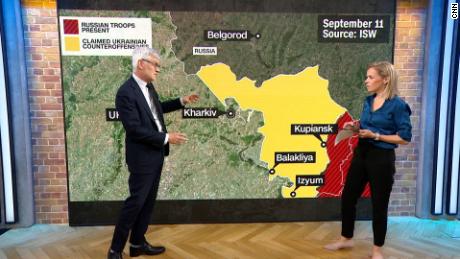
Map shows how Ukraine pulled off counteroffensive 04:19
Self-interest calculation
The question, then, becomes how far Beijing is willing to go to ensure Putin remains in control, and that Russia remains a powerful security and strategic partner to counterbalance America.
For its part, China has abstained from voting against Russia at the United Nations. It has blamed NATO and the US for the war and decried Western sanctions on Moscow. It has also stepped up economic assistance to its neighbor, boosting bilateral trade to record levels.
"China is willing to give Russia some tacit support politically, diplomatically and to some extent economically, but the bottom line is that it isn't going to go out of its way and undercut its other strategic objectives to support Russia," said Brian Hart, a fellow with the China Power Project at the Center for Strategic and International Studies.
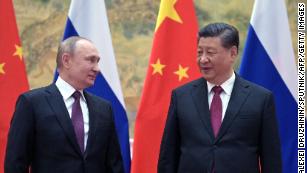
Putin needs Xi Jinping's help more than ever after his setbacks in Ukraine
So far, Beijing has carefully avoided actions that could violate Western sanctions, such as providing direct military aid to Moscow. Access to the global market is crucial for China, especially when its economy is already beset by severe problems -- from slowing growth, skyrocketing youth unemployment to a collapsing housing market.
One area to watch, Hart said, is arms sales. China has long been one of Russia's largest purchasers of arms. "I wonder if Russia's own defense industry is overstretched, would it turn to buy weapons from China," he said.
But even then, China would likely seek to send spare parts or items not on the sanction list, or ship them via convoluted routes that are difficult to trace.
"(Beijing and Moscow) have said over and over again that they don't intend to create a formal alliance that binds them in ways that go against their interests. That didn't work for them during the Sino-Soviet alliance in the 1950s, and I think they really view that as a lesson of history," Hart said.
"I think China will only continue to strengthen relations with Russia, to the extent that it really is in their overall interests."
Growing unease
But even before Russia's battlefield woes, its military aggression toward Ukraine -- and Beijing's tacit support for Moscow -- had already alienated some countries outside the Western orbit.
When Xi and Putin meet other leaders of the eight-nation Shanghai Cooperation Organization (SCO) in Uzbekistan on Thursday and Friday, the war in Ukraine will be the elephant in the room.
Having watched Russian tanks roll into Ukraine, a former Soviet republic, Central Asian leaders of former Soviet territories are worried that Russia could encroach on their land too.
Kazakhstan, in particular, has refused to toe Moscow's line. It has sent humanitarian aid to Ukraine, and its President Kassym-Jomart Tokayev has publicly refused to recognize Russia-backed separatist regions in eastern Ukraine, enraging some Kremlin officials.
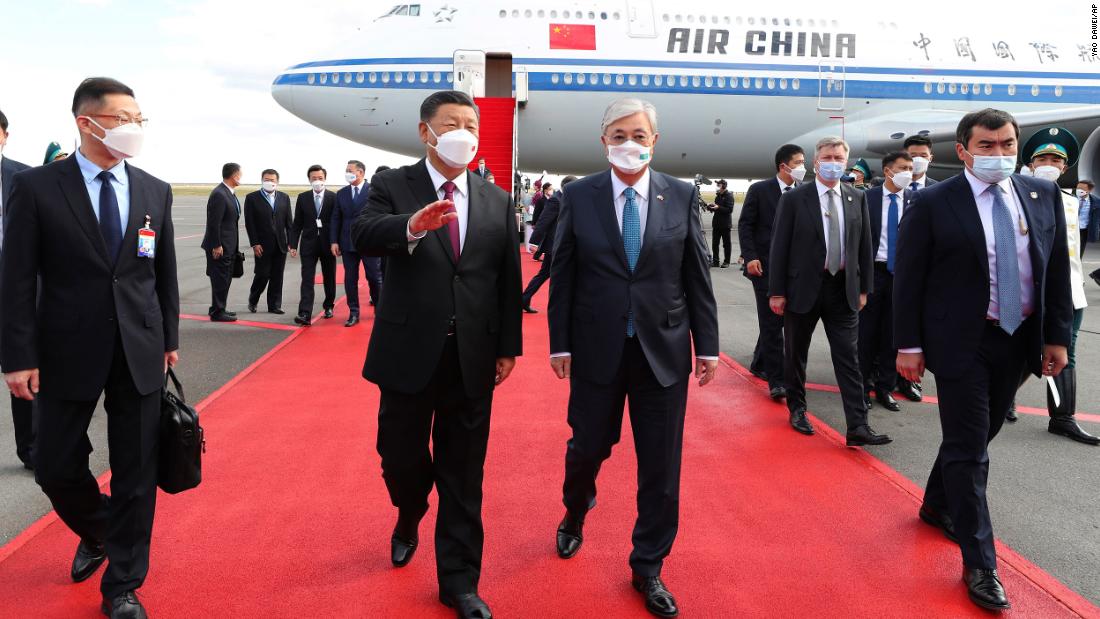
Chinese leader Xi Jinping with Kazakhstan's President Kassym-Jomart Tokayev as he arrives in Kazakhstan on Wednesday.
China's refusal to condemn Russia has caused unease among Central Asian countries, said Niva Yau, a senior researcher at the OSCE Academy, a foreign policy think tank in Kyrgyzstan.
"China is at odds with countries in the region because it is still looking at Russia's war in Ukraine from this anti-West narrative -- like it's about to bring down Western hegemony," she said.
That risks hampering China's efforts to build stronger ties with its Central Asian neighbors, an endeavor China has invested heavily in for two decades, according to Yau.
During Xi's state visit to Kazakhstan on Wednesday -- his first foreign trip in nearly 1,000 days -- the Chinese leader sought to allay such concerns.
"China will always support Kazakhstan in maintaining national independence, sovereignty and territorial integrity," Xi told Tokayev, the Kazakh President, according to Chinese state media.
An anti-West world order?
Xi's trip to Central Asia isn't only about showing support for Putin, though. It is also about strengthening ties in China's periphery and reasserting Beijing's global influence.
Founded by China in 2001 to combat terrorism and promote border security, the SCO was shrouded in relative obscurity for years. Under Xi, it expanded in size and profile, granting membership to India and Pakistan in 2017. After years on the waiting list as an observer, Iran is slated to become a full member at this summit, according to Chinese state media reports.
Afghanistan is also an observer, and the Taliban -- having taken over Kabul following a chaotic US withdrawal last year -- is sending a delegation to Samarkand.
But it is Iran that has set off most alarm bells in the West. Since 2019, Iran, Russia and China have held three joint naval drills amid deepening ties. Now, Iran's expected inclusion in the SCO is stoking fears long held by some observers that the grouping is emerging as an anti-West bloc.
But some experts say in its current state, the SCO is not really the ideal platform for China and Russia to push that anti-West world order.
As a multilateral organization, the SCO is a much weaker regional bloc compared to the European Union or the Association of Southeast Asian Nations.
"There has actually been some tension at times within the SCO. Russia has tried to advance some of its interests which aren't always aligned with China's in the region. I don't think it's perfectly set up to be this kind of platform for shaping a new world order," said Hart at the CSIS.
Also complicating the picture is the presence of India, which has strong ties with Russia dating back to the Cold War. But Delhi has also seen relations with Beijing nosedive due to conflicts along their border, and has moved closer to Washington and its allies in the Indo-Pacific.
India is a member of the Quadrilateral Security Dialogue alongside the US, Japan and Australia, a grouping driven closer together by China's threats.
Nevertheless, Xi will use the SCO summit to show both the home crowd and the world that, despite being diplomatically isolated by the West, China still has friends and partners, and is ready to take on more leadership on the world stage.
But if the war in Ukraine ends up being a major inflection point for Russia's weakening, it could deal a setback for Xi's plans.
"China doesn't really have any other large powerful partners in the way that the United States has many European and Indo-Pacific allies that it can rely on. So Russia is by far the most powerful state that is somewhat closely aligned with China," Hart said.
"I think that is something Beijing worries about -- that Russia will overextend itself and it could undermine their collective efforts to shape the world order."
CNN Website
Article Link
OTHER HUMAN RIGHTS PROMOTIONS WEBSITES
-------------------------------------------------------------------------------------
THE GLOBAL WORLD PROMOTIONS
-------------------------------------------------------------------------------------
---------------------------------------------------------------------------
------------------------------------------------------
----------------------------------





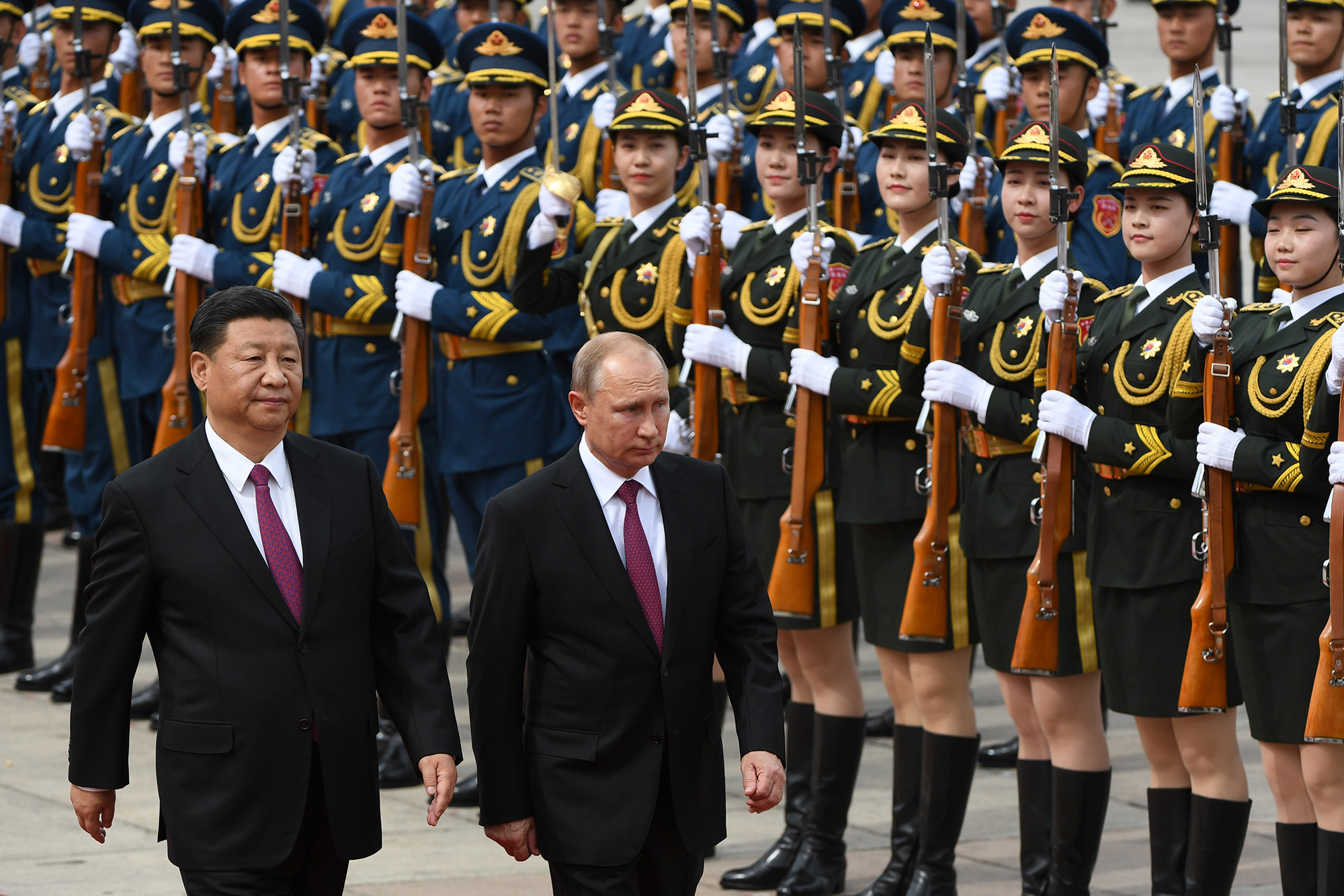
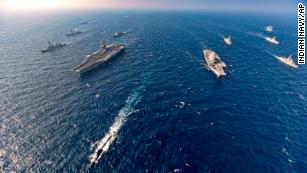






























0 comments:
Post a Comment